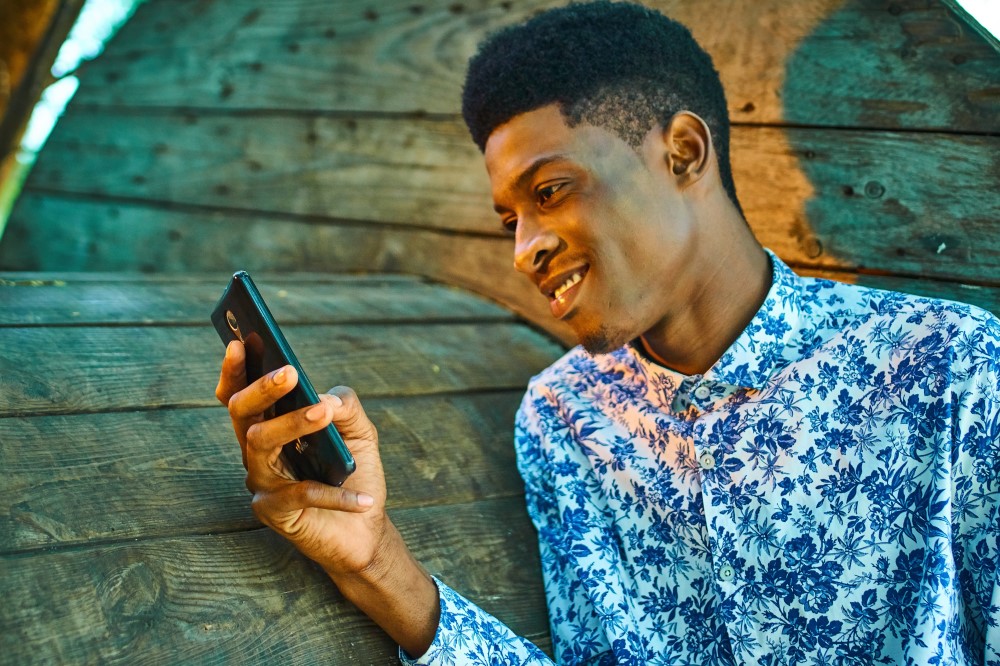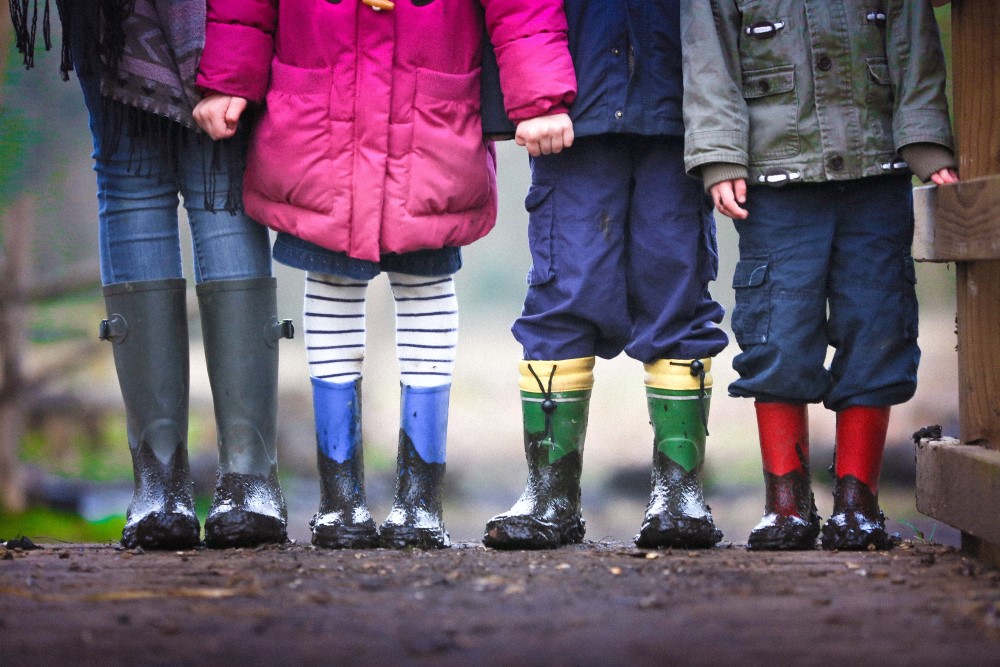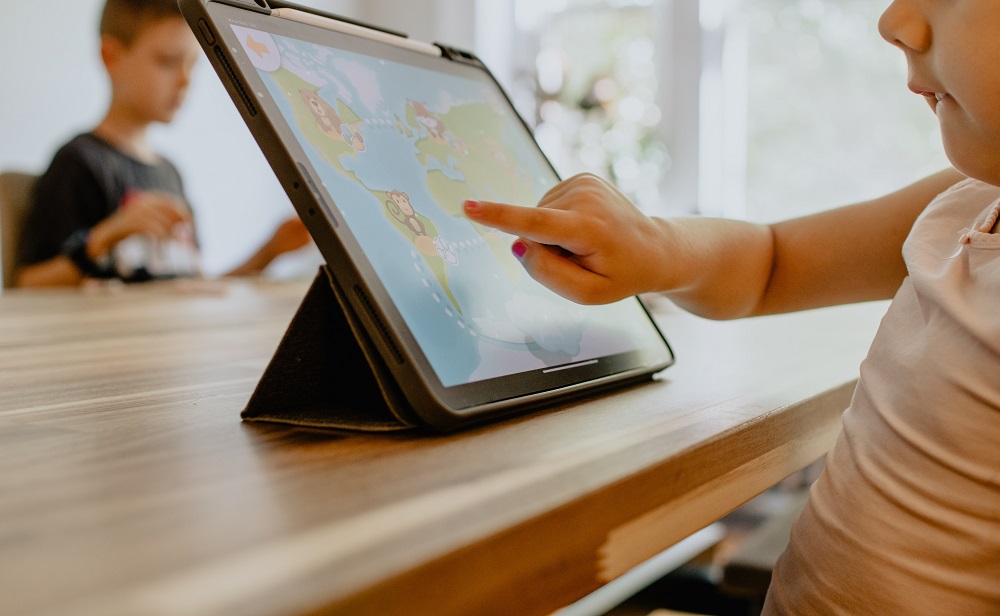Growing up I remember being allowed one hour online per day. There was ONE shared computer in the house, so I had to split the ‘daily internet allowance’ with my two brothers. This time was mainly spent waiting on the internet to dial up, and I still remember yelling ‘Don’t answer the phone; I’m online!’ if someone rang our landline as I was trying to chat with my friends on MSN Messenger. What a palava.
When I got my first mobile phone my parents had nothing to worry about; I could call home or play Snake. That was about it. Back then I think most of us had them to keep time, look cool and for our parents to be able to tell us to come home for dinner when we had forgotten to tell them where we were hanging out after school. They were simpler times.
I do remember when the first websites that enabled me to publish a daily photo became a thing. This was, as far as I can remember, also the first time strangers could get in touch with me by leaving a comment or sending a friend request of sorts. It wasn’t moderated back then, but it felt more innocent as I had no need to interact with anything published by a stranger; why would I? When the first online version of The Sims came out, I had my first experience with online gaming and being able to design and name my character as I pleased, and I could hide behind that character when chatting to strangers. The Sims online never captured me though; I much preferred to build houses and decorate them in peace, but I can see how that situation can be liberating and a chance to ‘test the waters’ when interacting. I can also see how it could become very unpleasant.
Growing up, beauty filters and photoshop were for glossy magazines and TV adverts only. We did not all have access to it in our pockets. Yet knowing this I somehow still find myself forgetting more often now, thinking ‘Why do I not look like that?’ Then I remember filters and the fact that I can’t be bothered going to the gym… Nowadays it’s so easy to leave a thumbs up or down, a like, on everything we see. In fact, complete strangers on YouTube are begging us to do so as it pays their bills. It’s a strange world I find myself in; being able to swipe left and right; form opinions on strangers based on their looks or likes.
But is it all that bad?
Are these just the ramblings of a 35-year-old woman who can’t wrap her head around how children today are thinking? I do believe that even if I remember my childhood as less competitive and scary, the fact that many children today are growing up with their own mobile phone, several computers around the house and in school plus an endless number of other gadgets is not necessarily a bad thing, it’s just a new thing. For me. Having access to an online world in your pocket opens endless opportunities to learn from other people by talking to them, watching their videos, listening to their podcasts or building friendships. On the train I can watch three different videos on the same topic and form my own opinion. I can choose to study online or find other people who share my interests. I can do my job, see my colleagues, meet with a doctor and order food. It’s amazing what I’m able to do just by being online really.
However, despite the very many benefits the proliferation of the Internet, connected devices and apps in an unregulated space has thrown up many challenges. The ability to quickly connect with the world at large, to communicate, to share, to hide behind a variety of personas has brought with it many challenges, many risks and much potential for harm. Whether it be the potential for grooming or the creation of body image concerns, or simply the change of cultural norms the dynamic has changed. Children are learning in a connected world and the influences that impact them are much wider than those I experienced when I was growing up. In the time it took me to connect to the Internet as a 10-year-old, the present generation of children may have communicated with multiple people through Snapchat, Whatsapp and other tools, they may well have shared their thoughts and images on a variety of sites or watched numerous TikToks. Whilst a significant proportion of this activity may be outside the home, the vast majority will be unregulated and unseen by ‘trusted adults.’
In a world of such unregulated activity, where remote relationships have supplemented, if not replaced, face-to-face ones, how do we ensure the cultural norms that define citizenship and society, are protected and nurtured? There is only one way and that is to ensure there is a balance of moderated, regulated access to the Social Web- where behaviours such as friending, chatting, sharing, viewing are undertaken. There must be active engagement with young users, primary-aged children where they can rehearse, practice and develop their skills as digital citizens. There must be adult intervention to intervene, moderate, model, to teach appropriate behaviours. This is nothing new for schools. They have been teaching children how to behave in the classroom, the school corridors, the playground and in the wider world for decades. But it needs extending to the online world.
Nowadays, trusted adults must make choices regarding children’s access to social media and time spent online based not on the bill or the fact that they ‘get square eyes if spending too much time in front of a screen’ – but based on what we want them to get exposed to. And as a Primary teacher, you must find ways of having these conversations with the class; why we must be kind online, and how to do so. Children may grasp that words can be hurtful, even if misunderstood, but the online world can seem ‘not real’ or a place where one can anonymously leave upsetting comments as well as a vast unlimited access to knowledge and fun.
Safe first-hand experience
With Primary aged children’s worlds today being so much larger than when I was growing up due to online gaming, social media and the sheer number of websites dedicated to just about anything one could desire, the classroom should offer a space that provides children with a tool to flag any behaviour they do not agree with. We have said it before, but it bears repeating; you do not teach a child to swim or ride a bike by giving them homework on the topic – you must physically help them gain first-hand experience in that very situation. We would argue that the same goes for online behaviour.
How we show respect online can be through encouraging words, praising someone’s good idea or just a thumbs up. But equally at times it’s more about understanding when to say nothing. It’s scary how easy it has become to hide behind an anonymous account and spread hatred. But by highlighting the power and possibilities with the online world, and helping children learn from their mistakes early on, we hope that a safer internet is within reach.

 Australia
Australia Canada
Canada LATAM
LATAM New Zealand
New Zealand UAE
UAE United States
United States








